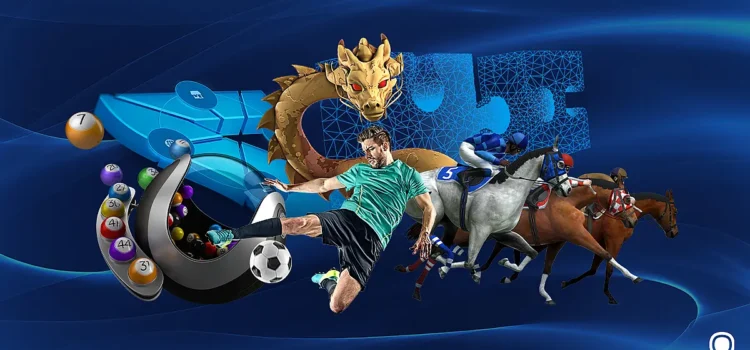
Share:
When it comes to gambling, particularly in casino games with a house edge like roulette or craps, there is a consistent theme that pervades: the search for a “winning” betting system.
Over the years, thousands of gamblers have turned to various systems, believing they can outsmart the odds and beat the casino.
The belief in betting systems is so strong that it almost borders on fanaticism.
People search for that one trick, the magic formula that will somehow guarantee success.
However, the truth is, these systems do not work. In fact, they fail to even make a dent in the house advantage, and when you look at the mathematics of gambling, it’s clear why.
Understanding Betting Systems
A betting system is essentially a set of rules or strategies that a gambler follows when placing bets, with the hope of reducing losses or increasing winnings.
These systems often come with a promise that they will “beat the house” or give players a significant edge over the casino.
Whether it’s doubling bets after losses or altering bet sizes based on patterns, the systems all have one thing in common: they rely on misconceptions about the nature of random events in games of chance.
The problem with these systems is that they are based on flawed logic. In games like roulette or craps, the outcomes of spins or rolls are completely independent of previous outcomes.
This means there is no “memory” in the game. The roulette wheel doesn’t know whether the last 10 spins were red or black; the dice don’t remember the last result.
Each outcome is purely random. But many betting systems—like the Martingale—are based on the assumption that one outcome will influence the next, which is simply not true.
The Gambler’s Fallacy
The most common misconception underlying many betting systems is the gambler’s fallacy.
This is the belief that if a certain event has not happened for a while, it is “due” to happen.
For example, if a roulette wheel has landed on red five times in a row, many gamblers believe that black is now more likely to occur.
This fallacy is the basis for numerous betting strategies that attempt to exploit this perceived “pattern.”
However, the truth is that each spin of the wheel, each roll of the dice, and each shuffle of the cards is independent.
The past does not influence the future.
In fact, any gambling game with a random number generator or physical randomness (like a roulette wheel or dice) adheres to the principle that each outcome is independent, with its own probability.
The probability of the next event occurring is the same as the last, and no event can be considered “due” simply because it hasn’t happened recently.
The Monte Carlo fallacy, also known as the “doctrine of the maturity of the chances,” is another version of the gambler’s fallacy.
It is the mistaken belief that random events will balance out in the short term.
For instance, in a series of coin flips, if you have 10 heads in a row, the fallacy assumes that tails are now “due” to balance the results.
The odds remain the same for each flip, regardless of past outcomes.
Gamblers who rely on systems based on this fallacy fail to understand this fundamental truth, and casinos profit as a result.
The Martingale System: A Classic Example
One of the most well-known and widely used betting systems is the Martingale.
The basic idea behind the Martingale system is simple: after every loss, double your bet, so that when you eventually win, you will cover all your previous losses and make a profit equal to your original stake.
For example, imagine you start with a $1 bet. If you lose, your next bet would be $2.
If you lose again, your next bet would be $4, and so on. If you win on the fifth bet, you will have won enough to cover all your previous losses plus a $1 profit.
On paper, this sounds like a sure way to win. However, in reality, this system has major flaws.
First, the odds are not in your favor, and second, it is possible to lose several bets in a row, especially when betting on even-money bets like red or black in roulette.
If you lose enough times, you will quickly exceed your bankroll, and the system collapses.
To demonstrate the pitfalls of the Martingale system, I ran a simulation where I compared the results of two betting methods: the Martingale and flat betting.
The Martingale bettor doubled their bet after each loss, while the flat bettor kept betting the same amount every time.
In the simulation, the Martingale bettor had a starting bankroll of $255 and could cover up to eight consecutive losses.
After 100 bets, the flat bettor’s results showed a relatively small loss of $1.12 per session, while the Martingale bettor’s loss averaged $4.20 per session.
The results showed that even though the Martingale bettor sometimes experienced a large win, the risk of hitting a long losing streak was high enough to wipe out their gains.
Interestingly, the ratio of money lost to money wagered in both cases approached the house edge for the game being played.
This illustrates the fundamental truth that, regardless of the betting system, the house edge cannot be overcome by any betting strategy in the long run.
The Illusion of Betting Systems
There are numerous other betting systems—like the Fibonacci, Labouchere, and D’Alembert systems—that claim to provide a pathway to profit in casino games.
However, the truth remains the same: no betting system can overcome the house edge.
These systems are based on flawed assumptions and fail to take into account the randomness and independence of each bet.
The most important takeaway is that while these systems may provide short-term excitement or even a few small wins, they ultimately fail in the long run.
Casinos are built to make money, and their games are designed to have a house edge that cannot be avoided through any betting strategy.
The Mathematics Behind Betting Systems
What makes these betting systems ultimately ineffective is the mathematics of the games themselves.
Take roulette as an example. The wheel has a specific set of probabilities, and the house edge is built into the game.
The roulette ball doesn’t care about past results. No matter how much you increase your bets or adjust your strategy, the outcome of each spin remains the same.
Similarly, in games like craps, blackjack, or baccarat, the house edge exists due to the rules of the game and the probabilities involved.
No system, no matter how well thought out, can alter these odds in the player’s favor.
The key to understanding why betting systems don’t work is to realize that casinos do not need to rely on any special tricks or tactics to ensure they make money; they simply rely on the inherent odds of the games they offer.
Don’t Waste Your Money on Betting Systems
Despite the overwhelming evidence that betting systems don’t work, there are still people who believe in their effectiveness.
Some of these systems are sold with promises of guaranteed success, but they are nothing more than modern-day scams.
The people selling these systems are akin to snake oil salesmen, making false claims in an attempt to profit from the misinformed.
The truth is, no betting system has ever been proven to work. Anyone who claims otherwise is either misinformed or trying to sell you something.
Betting systems simply cannot alter the inherent odds of the games you are playing, and no amount of betting strategy can overcome the house edge in the long run.
The Final Verdict: Betting Systems Are a Losing Proposition
In conclusion, while betting systems may offer hope and excitement, they are ultimately flawed.
The odds in casino games are fixed, and no betting strategy can change that. While these systems might work in the short term due to the natural variance of random events, over time, they will always fail.
If you enjoy gambling, it’s important to understand that the odds are against you, and no betting system can change that.
The best strategy is to play for fun, manage your bankroll wisely, and accept that the house will always have the edge.
By all means, enjoy the excitement of gambling, but don’t fall for the illusion of a betting system that promises to beat the odds.
In the end, it’s simply not possible.











